Worcester pressure boiler issues
Worcester boilers are renowned for their reliability and efficiency, making them a popular choice for many households across the UK. However, like any complex appliance, they can encounter issues over time. One of the most common problems that homeowners face is related to boiler pressure. Understanding these issues and knowing how to address them can save you time, money, and inconvenience. This comprehensive guide will explore the various pressure-related issues that can arise with Worcester boilers and provide practical solutions to help you maintain your heating system effectively.
Understanding Boiler Pressure
Boiler pressure is a critical aspect of your heating system’s operation. It refers to the pressure of the hot water circulating in the system, which is essential for efficient heating. The pressure is measured in bars, and for most Worcester boilers, the ideal pressure level is between 1 and 1.5 bars when the system is cold. Maintaining the correct pressure ensures that your boiler operates efficiently and safely.
When the boiler pressure is too low, it can lead to inadequate heating and hot water supply, causing discomfort and inconvenience. Conversely, if the pressure is too high, it can cause stress on the boiler components, leading to potential damage and costly repairs. Regularly checking and maintaining the correct boiler pressure is crucial for the longevity and efficiency of your heating system.
Understanding how to read the pressure gauge on your Worcester boiler is the first step in managing these issues. Most modern boilers have a pressure gauge on the front panel, which provides a clear indication of the current pressure level. Familiarising yourself with this gauge will help you quickly identify any deviations from the normal range.
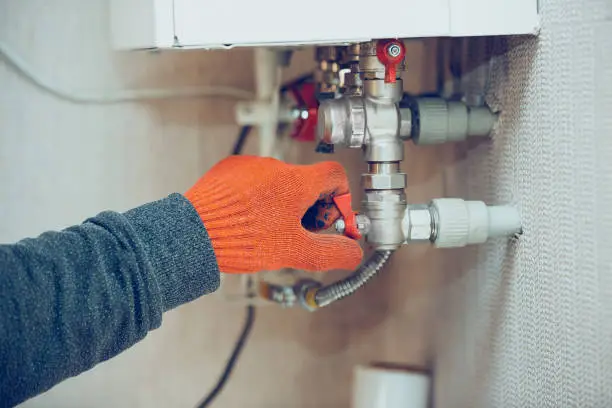
Common Pressure Issues in Worcester Boilers
Low Boiler Pressure
Low boiler pressure is a frequent issue that can result from various factors. One common cause is a leak in the system, which allows water to escape and reduces the overall pressure. Leaks can occur in pipes, radiators, or the boiler itself, and identifying the source is crucial for resolving the problem.
Another potential cause of low pressure is bleeding radiators. While this process is necessary to remove trapped air and improve heating efficiency, it can also lead to a drop in pressure if not done correctly. Ensuring that the system is properly refilled after bleeding radiators is essential to maintain the correct pressure level.
In some cases, low pressure can be attributed to a faulty pressure relief valve or an issue with the expansion vessel. These components play a vital role in regulating pressure, and any malfunction can lead to pressure problems. Regular maintenance and inspection by a qualified engineer can help prevent these issues from arising.

High Boiler Pressure
High boiler pressure is another common issue that can lead to significant problems if not addressed promptly. One of the primary causes of high pressure is overfilling the system. When topping up the boiler, it is essential to ensure that the pressure does not exceed the recommended level, as this can place undue stress on the system.
A malfunctioning pressure relief valve can also contribute to high pressure. This valve is designed to release excess pressure from the system, and if it becomes stuck or fails to operate correctly, the pressure can rise to dangerous levels. Regular checks and maintenance can help ensure that the valve functions properly.
In some instances, high pressure can be caused by a faulty expansion vessel. This component absorbs the expansion of water as it heats up, and if it is not functioning correctly, it can lead to increased pressure. A professional inspection can help diagnose and resolve issues with the expansion vessel.

How to Fix Boiler Pressure Issues
Addressing Low Pressure
If you notice that your Worcester boiler’s pressure is too low, the first step is to check for any visible leaks in the system. Inspect the pipes, radiators, and the boiler itself for signs of water leakage. If you identify a leak, it is advisable to contact a qualified engineer to repair it, as attempting to fix it yourself can lead to further damage.
Once any leaks have been addressed, you can increase the pressure by topping up the system. Most Worcester boilers have a filling loop that allows you to add water to the system. Follow the manufacturer’s instructions to ensure that you do not overfill the system, and monitor the pressure gauge to maintain the correct level.
If the pressure remains low despite these efforts, it may be necessary to have a professional inspect the pressure relief valve and expansion vessel. These components may require repair or replacement to restore the correct pressure level.
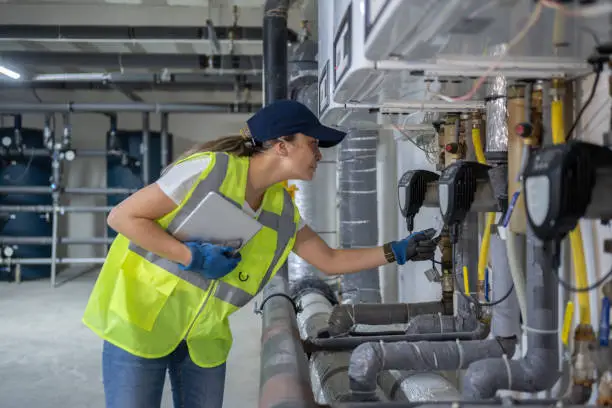
Resolving High Pressure
To address high boiler pressure, begin by checking the filling loop to ensure it is closed correctly. If the loop is open, it can allow water to continuously enter the system, leading to increased pressure. Closing the loop should help stabilise the pressure.
If the pressure remains high, it may be necessary to release some water from the system. This can be done by bleeding the radiators, which will allow excess water to escape and reduce the pressure. Be sure to check the pressure gauge regularly during this process to avoid dropping the pressure too low.
For persistent high pressure issues, it is advisable to have a professional inspect the pressure relief valve and expansion vessel. These components may need servicing or replacement to ensure they function correctly and maintain the appropriate pressure level.
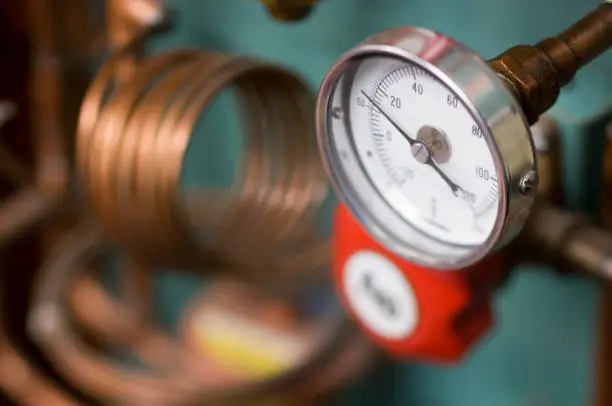
Preventative Measures and Maintenance
Regular Maintenance
Regular maintenance is key to preventing pressure issues and ensuring the efficient operation of your Worcester boiler. Scheduling an annual service with a qualified engineer can help identify potential problems before they escalate, saving you time and money in the long run.
During a service, the engineer will check the pressure relief valve, expansion vessel, and other critical components to ensure they are functioning correctly. They will also inspect the system for leaks and other issues that could affect pressure levels.
In addition to professional servicing, homeowners can perform routine checks to monitor the pressure gauge and ensure it remains within the recommended range. This proactive approach can help prevent pressure issues from developing and ensure your boiler operates efficiently.
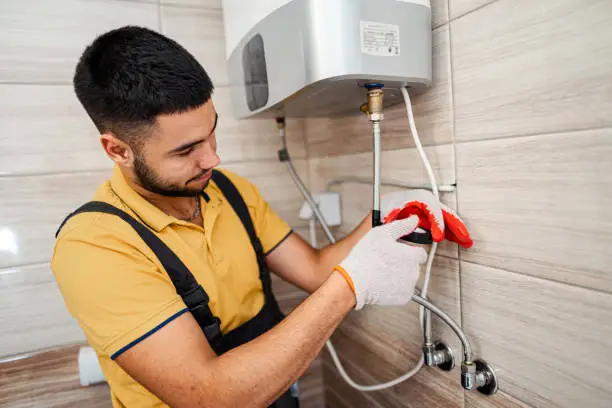
System Flushing
Over time, sludge and debris can accumulate in the heating system, affecting its efficiency and potentially leading to pressure issues. Flushing the system can help remove these deposits and improve overall performance.
A power flush is a thorough cleaning process that uses chemicals and a powerful pump to remove sludge and debris from the system. This process can help restore efficiency and prevent pressure-related problems from arising.
While a power flush is not required annually, it can be beneficial every few years, especially if you notice a decline in heating performance or persistent pressure issues. A qualified engineer can advise on the appropriate frequency for your system.
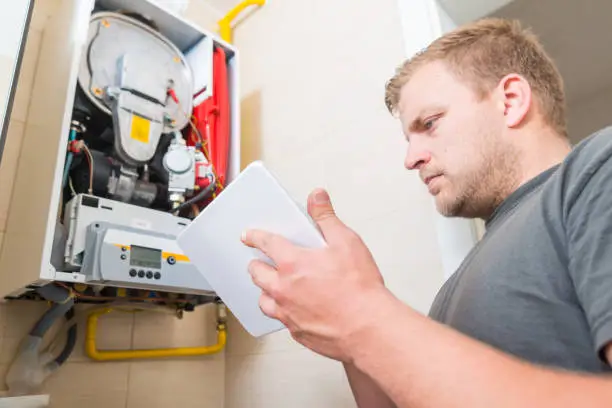
When to Call a Professional
While some boiler pressure issues can be resolved by homeowners, there are situations where professional assistance is necessary. If you are unable to identify the cause of a pressure problem or if the issue persists despite your efforts, it is advisable to contact a qualified engineer.
Professionals have the expertise and tools to diagnose and repair complex issues, ensuring that your boiler operates safely and efficiently. Attempting to fix certain problems without the necessary knowledge can lead to further damage and increased repair costs.
In addition, if you notice any unusual noises, smells, or leaks coming from your boiler, it is essential to seek professional help immediately. These signs can indicate serious issues that require prompt attention to prevent further damage or safety hazards.
Conclusion
Understanding and addressing Worcester pressure boiler issues is crucial for maintaining an efficient and reliable heating system. By familiarising yourself with common pressure problems, performing regular maintenance, and knowing when to seek professional help, you can ensure that your boiler operates smoothly and efficiently. Taking a proactive approach to boiler care will not only enhance comfort in your home but also extend the lifespan of your heating system, providing peace of mind and cost savings in the long term.
